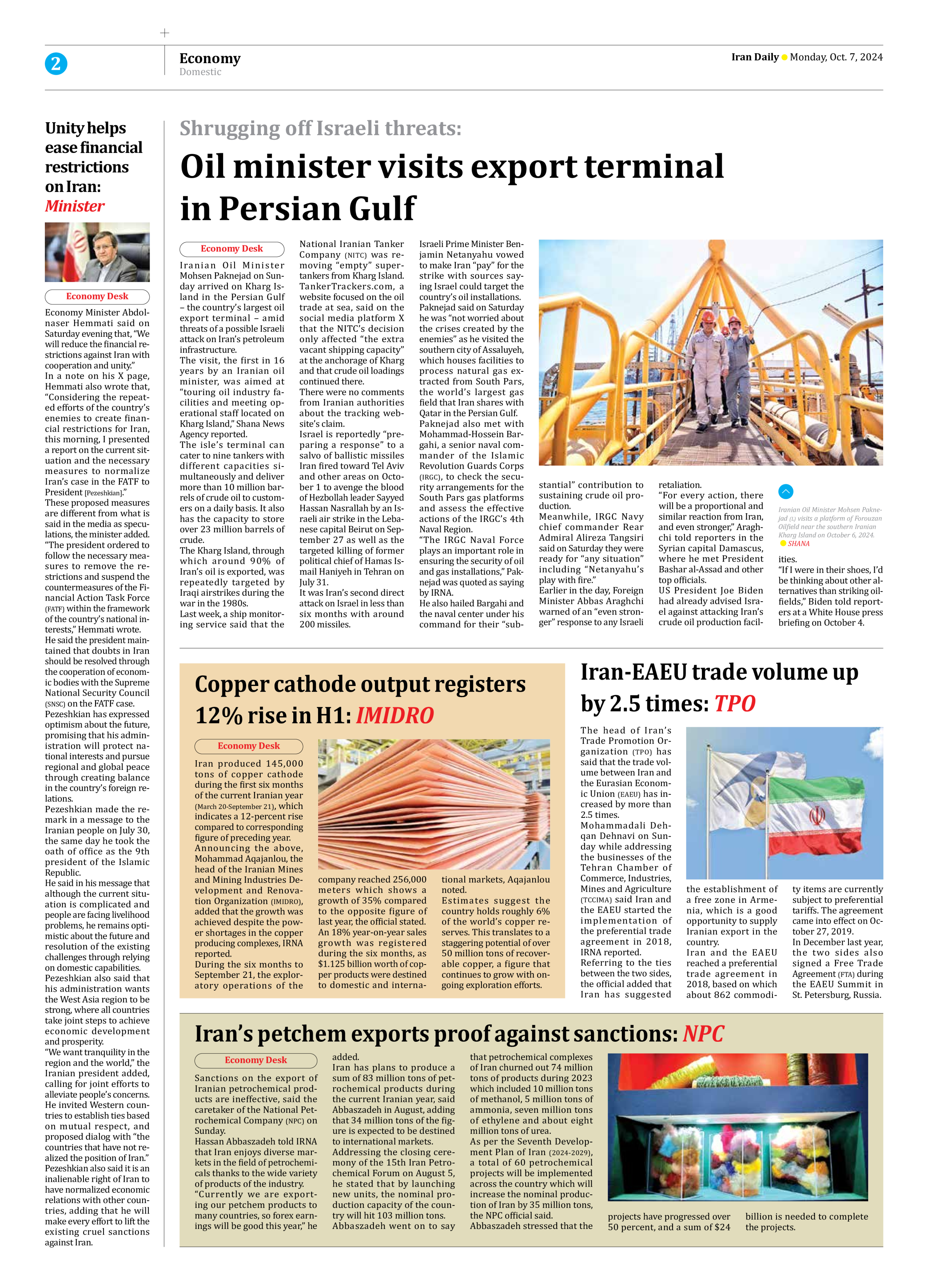
Shrugging off Israeli threats:
Oil minister visits export terminal in Persian Gulf
Iranian Oil Minister Mohsen Paknejad on Sunday arrived on Kharg Island in the Persian Gulf – the country’s largest oil export terminal – amid threats of a possible Israeli attack on Iran’s petroleum infrastructure.
The visit, the first in 16 years by an Iranian oil minister, was aimed at “touring oil industry facilities and meeting operational staff located on Kharg Island,” Shana News Agency reported.
The isle’s terminal can cater to nine tankers with different capacities simultaneously and deliver more than 10 million barrels of crude oil to customers on a daily basis. It also has the capacity to store over 23 million barrels of crude.
The Kharg Island, through which around 90% of Iran’s oil is exported, was repeatedly targeted by Iraqi airstrikes during the war in the 1980s.
Last week, a ship monitoring service said that the National Iranian Tanker Company (NITC) was removing “empty” supertankers from Kharg Island.
TankerTrackers.com, a website focused on the oil trade at sea, said on the social media platform X that the NITC’s decision only affected “the extra vacant shipping capacity” at the anchorage of Kharg and that crude oil loadings continued there.
There were no comments from Iranian authorities about the tracking website’s claim.
Israel is reportedly “preparing a response” to a salvo of ballistic missiles Iran fired toward Tel Aviv and other areas on October 1 to avenge the blood of Hezbollah leader Sayyed Hassan Nasrallah by an Israeli air strike in the Lebanese capital Beirut on September 27 as well as the targeted killing of former political chief of Hamas Ismail Haniyeh in Tehran on July 31.
It was Iran’s second direct attack on Israel in less than six months with around 200 missiles.
Israeli Prime Minister Benjamin Netanyahu vowed to make Iran “pay” for the strike with sources saying Israel could target the country’s oil installations.
Paknejad said on Saturday he was “not worried about the crises created by the enemies” as he visited the southern city of Assaluyeh, which houses facilities to process natural gas extracted from South Pars, the world’s largest gas field that Iran shares with Qatar in the Persian Gulf.
Paknejad also met with Mohammad-Hossein Bargahi, a senior naval commander of the Islamic Revolution Guards Corps (IRGC), to check the security arrangements for the South Pars gas platforms and assess the effective actions of the IRGC’s 4th Naval Region.
“The IRGC Naval Force plays an important role in ensuring the security of oil and gas installations,” Paknejad was quoted as saying by IRNA.
He also hailed Bargahi and the naval center under his command for their “substantial” contribution to sustaining crude oil production.
Meanwhile, IRGC Navy chief commander Rear Admiral Alireza Tangsiri said on Saturday they were ready for “any situation” including “Netanyahu’s play with fire.”
Earlier in the day, Foreign Minister Abbas Araghchi warned of an “even stronger” response to any Israeli retaliation.
“For every action, there will be a proportional and similar reaction from Iran, and even stronger,” Araghchi told reporters in the Syrian capital Damascus, where he met President Bashar al-Assad and other top officials.
US President Joe Biden had already advised Israel against attacking Iran’s crude oil production facilities.
“If I were in their shoes, I’d be thinking about other alternatives than striking oilfields,” Biden told reporters at a White House press briefing on October 4.







